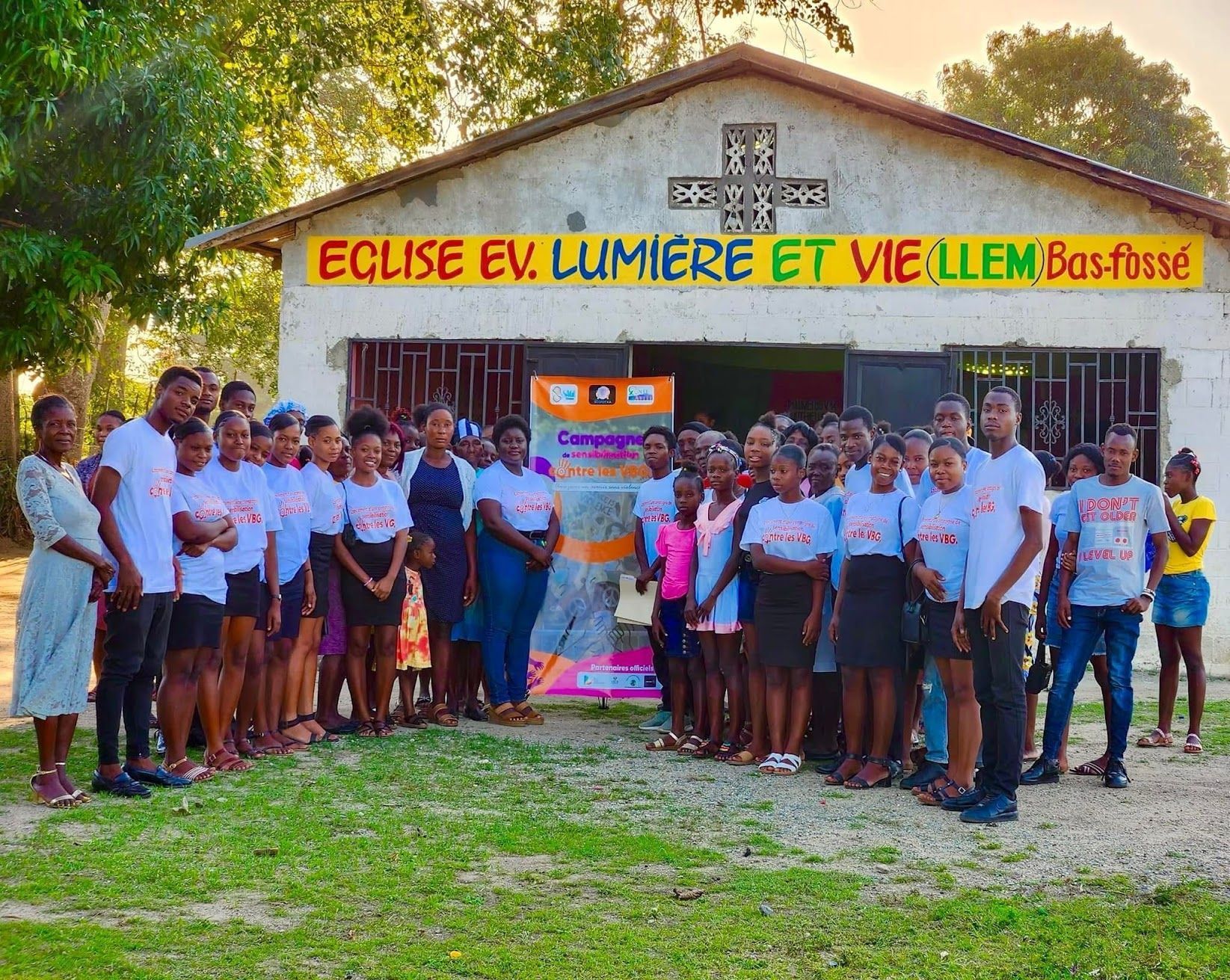Project updates from Haiti
The Steve Sinnott Learning Resource Centre is being used every day. 302 students and teachers use the resource here every week: 1st grade to High School students take at least 2 hours of computer classes and English, the virtual lab is used for high schoolers for chemistry and physics, our 82 pre schoolers also use the lab for audio visual English and Lakou Kajou educational materials. All the other extracurricular activities (sewing, crafts, culinary arts, dance, painting) benefit 85 students. 23 Community youths and 8 VSLA Community Supervisors take online English and computer courses on Saturdays and Sundays. In total 350 beneficiaries every week benefit from the resources.
Gender Based Violence and Positive Periods Training:
We had a surprise visit in March from Jean Jean Roosevelt, the well-known Haitian Canadian artist, in support of our GBV campaign. JJR is also a UNICEF Ambassador, he had a special program for just our boys to share their opinions about GBV. They wrote a paragraph on how it is affecting them personally and their communities and what message they can share to stop GBV. Several boys were able to come up onto the stage to perform and he arranged everything into a music video that will be released shortly. He is visiting several schools to record boys' voices about GBV issues, and the best song will win the contest. I hope we do.
Gender Based Violence Awareness Campaign:
Steve Sinnott Foundation, Sonje Ayiti, SosPsy and SAGE SERVICES. In March we dedicated a campaign called Violence Basée sur le Genre (VBG) to women's rights and the fight for equality The Steve Sinnott Foundation, Sonje Ayiti, SosPsy and SAGE SERVICES launched a joint awareness campaign to combat Gender-Based Violence (VBG). This initiative aims to educate, prevent and mobilize the community against all forms of gender-related violence, whether physical, psychological, economic or social. Through workshops, inspiring testimonials and awareness sessions, these structures are committed to: - Breaking the silence surrounding the VBGs. - Strengthen access to resources and support services for survivors. - Promote a culture of respect and fairness in all areas (home, work, school, church, etc.) ). “Every act of awareness is a step towards a fairer society. Together, let's denounce violence and support the voices of the victims," the coalition states. How to participate? It's simple! Share our awareness posts on social networks with the hashtag #NoToVBG.
An awareness session against VBG:
On March 09 2025 as part of the campaign to raise awareness against Gender Based Violence, Sonje Ayiti, SAGE SERVICES and SOS PSY Haiti continued their actions in Ba-Fossé, in the Evangelical Church of Light and Life. Many thanks to all the partners who support this initiative: The Steve Sinnott Foundation , CECE, LHDRadio, Radio Francophonie.
A special thank you to the Soroptimists International Foundation for match funding GBV and Positive Periods training this month.
Together we continue to work towards sustainable change!
Soroptimist International Foundation is pleased to support the Steve Sinnott Foundation’s ‘Ensuring Girls’ Equitable Access to Education’ project, which tackles period poverty and violence —key barriers to girls' education. The initiative will train women and girls to produce reusable period pads, promote menstrual hygiene, and educate communities to challenge harmful myths. It also empowers school leaders to address violence against girls and advocate for equal education opportunities. With £16,000 in funding, Soroptimist International Foundation is helping drive lasting change in Haiti and Nepal, ensuring more girls can stay in school and thrive.





